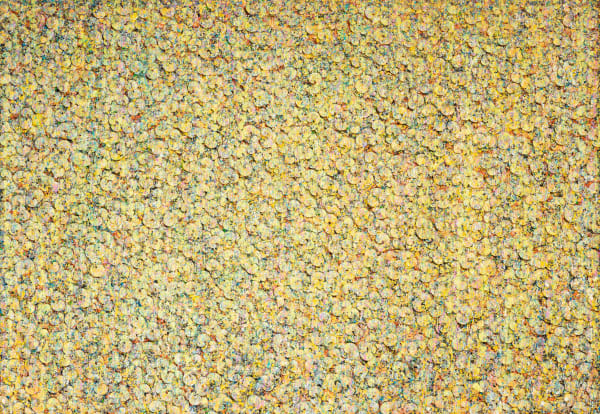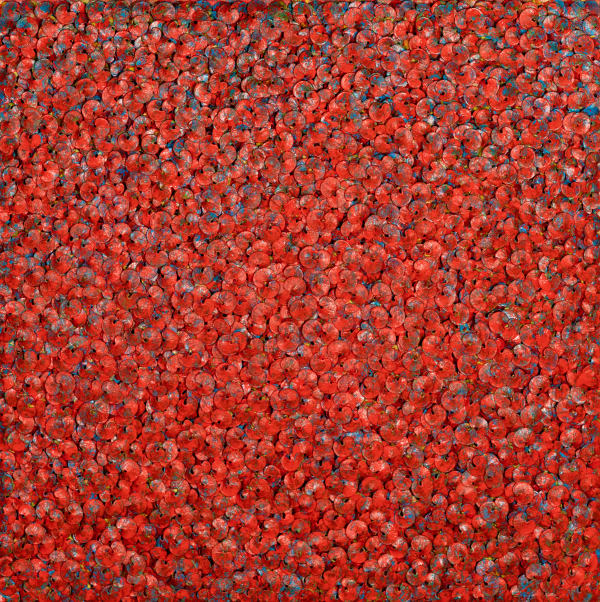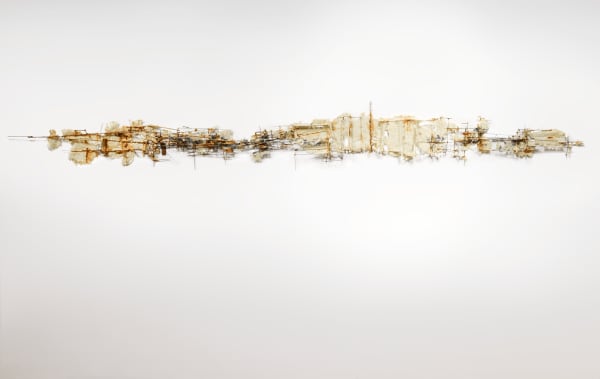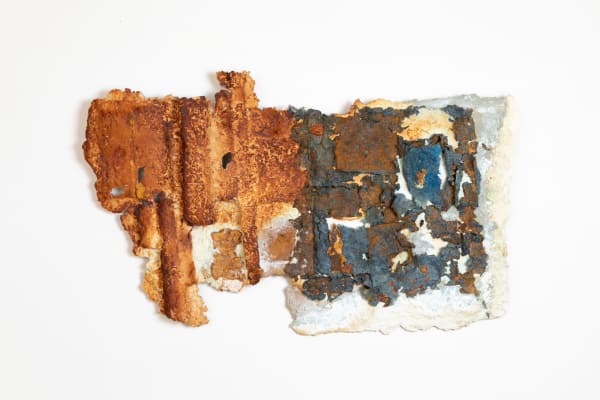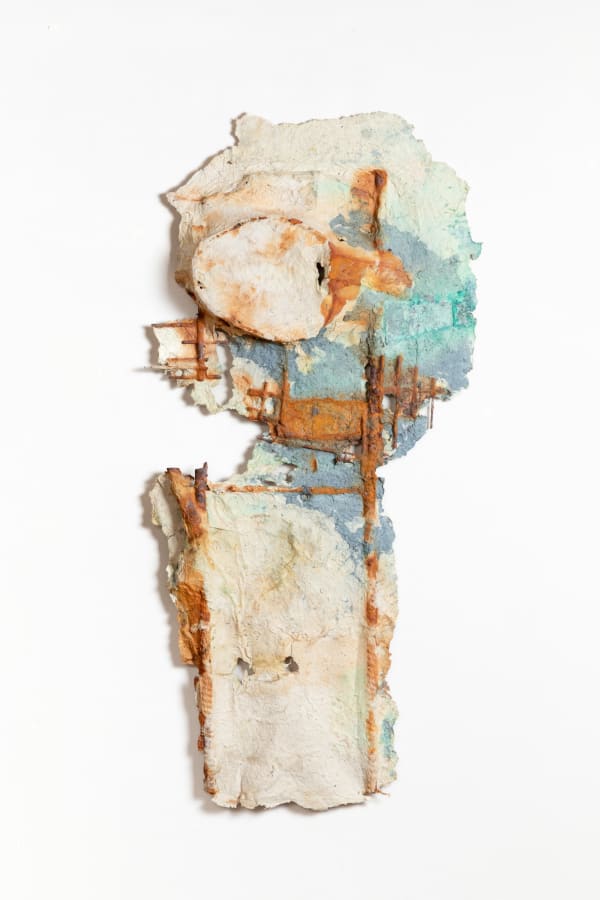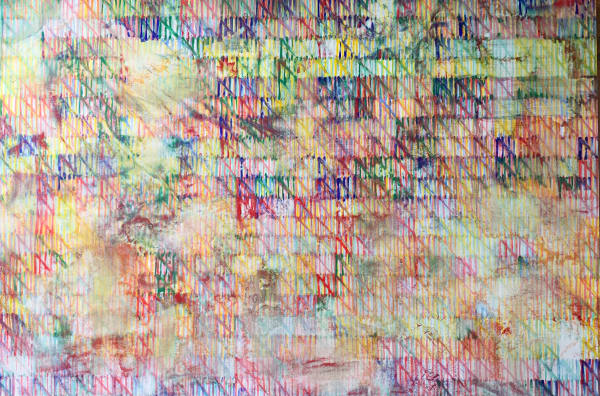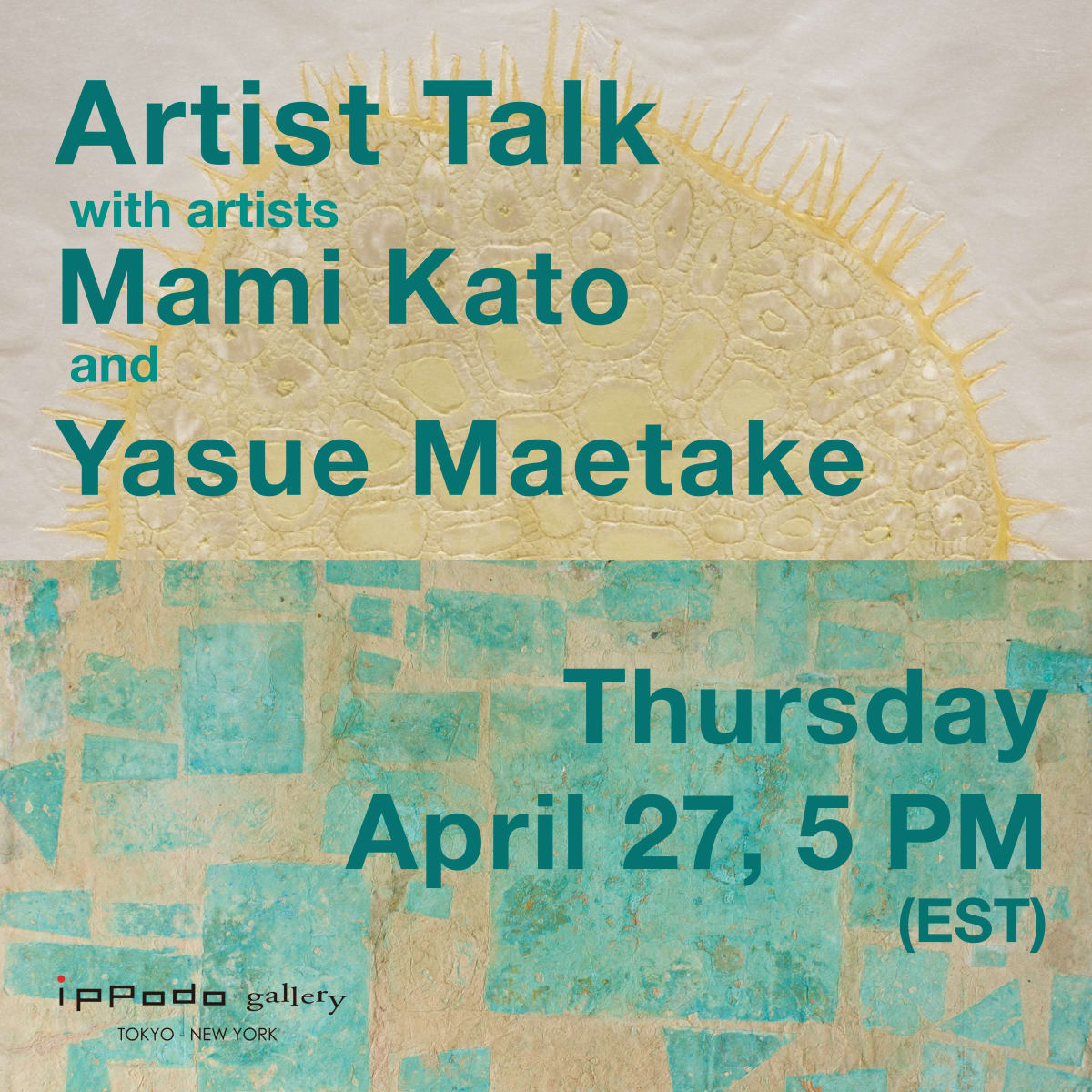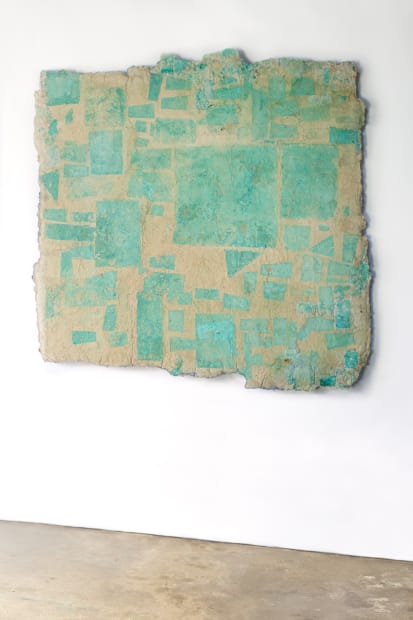-
Overview
Ippodo Gallery presents selected washi artworks by five Japanese artists (KAKU, Mami Kato, Yasue Maetake, Ryuji Taira, Kaori Teraoka) working with traditional paper in diverse modes. Panta Rhei: Everything Flows unveils new perspectives in Japanese paper, transforming the medium into voluminous crafted planes. Washi is a medium in flux, intertwined with Japanese cultural memory and each artist’s sensibility.
Washi (fibers of gampi, mulberry kozo and mitsumata, and the hemp mashi, among many others) is treasured for its longevity, as the extraordinarily long, thin fibers—which are both durable and flexible—are slow to degrade. Japan’s paper tradition has maintained a broad and profound influence on art, culture, life, and architecture for a millennium.These five artists, working with the flat material in both two- and three-dimensions, demonstrate the beauty and tenaciousness of Japanese paper as a form of artistic expression.
The exhibition is on view from April 27th through May 17th.
Ippodo Gallery is committed to creating shared empathetic, craft-oriented experiences through engagement with Japanese art and culture. We continue to showcase work by living artists that adheres to our mission to cultivate beauty with a consciousness of the fragility of nature and the strength of quiet serenity. Ippodo Gallery has worked directly with over 200 artists and held thousands of exhibitions over three decades. We are grateful to continue to bring contemporary Japanese fine art and sensibility to Western audiences. Keiko Aono founded Ippodo Gallery Tokyo in 1996, with two locations in the heart of Ginza and the residential area of Gotenyama. Daughter Shoko Aono opened Ippodo Gallery in New York in 2008, forging new connections with a global audience. Since then, she continues to witness the timeless cross-cultural impact of Japanese kogei art that transcends language.
-
Works
-

A thousand gestures and subtle details converge in Ryuji Taira’s (b. 1960, Kumamoto, Kyushu, Japan) delicate photo prints on washi paper. Taira’s motifs—environmental microcosms—are brought to life by the nineteenth century style platinum printing technique imposed on gampi-washi. Taira translates dandelions and living creatures, using a large-format camera and silver halide film, into immortal images. Taira’s gampi-washi medium, which he prepares with lacquer over ten years, allows him to simultaneously preserve the natural essence of the symbolism and the transience of nature, defying decay.
Classically trained in nihonga painting, Kaori Teraoka (b. 1995, Shizuoka, based in Tokyo, Japan)uses mashi hemp paper in a meditative and rhythmic technique. Like a performance, each brush stroke corresponds to one second. Her gestures become a way of grounding body with mind, made with intention and focus even in the face of an uncertain world. Teraoka’s practice illustrates the relationship between physical action and the flow of time.
About the Gallery
Committed to creating shared craft- and Japanese culture-oriented experiences, Ippodo Gallery has worked directly with over 200 artists and held thousands of exhibitions over three decades. Keiko Aono founded Ippodo Gallery Tokyo in 1996, with two locations in the heart of Ginza and the residential area of Gotenyama. Daughter Shoko Aono opened Ippodo Gallery in New York in 2008, forging new connections with a global audience. Since then, she continues to witness the timeless cross-cultural impact of Japanese kogei art that transcends language.
-
Events
-

Washi embodies the Japanese ‘naturalistic view of history’ (Yasue Maetake), becomes ‘words of nature’ (KAKU); it can transform into ‘protoplasmic organisms’ (Mami Kato), eternalize the ‘continuity of life’ (Ryuji Taira), and the ‘memory of one’s own physicality’ (Kaori Teraoka).
Today, although record keeping and communication have become digitalized, paper will never be forgotten, as it is a medium connecting the spiritual and the material realms. Furthermore, as a link between nature and people, washi continues to tether our fickle spirits, the ever-changing scenery, and our unrestrained imaginations.
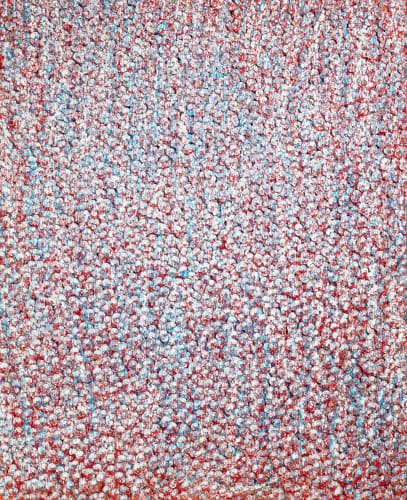
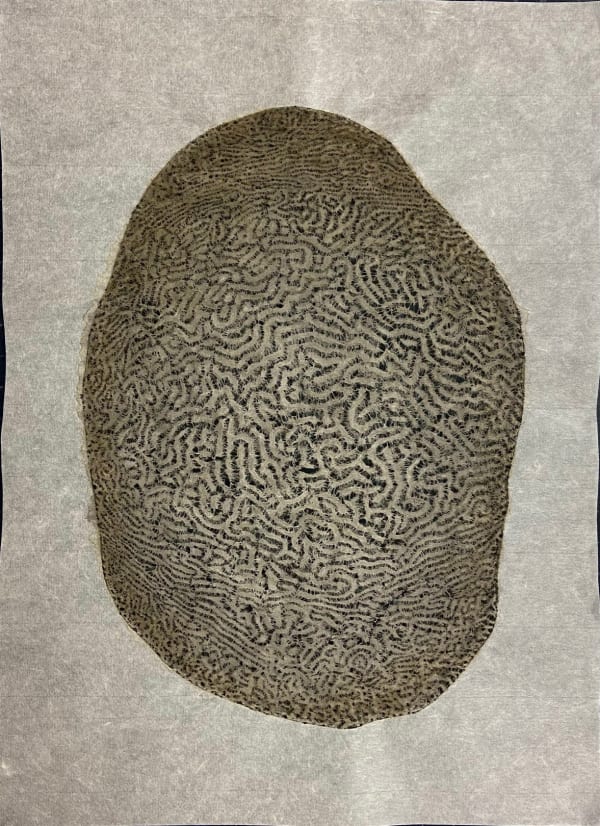


![Mami Kato Lace-leaf [Framed], 2022 Gampi Paper, Gouache](https://artlogic-res.cloudinary.com/w_600,c_limit,f_auto,fl_lossy,q_auto/artlogicstorage/ippodogallery/images/view/85d720260da2f2aa758e30f9b3b4fd75j/ippodogallery-mami-kato-lace-leaf-framed-2022.jpg)
![Mami Kato Plant sway (green) [Framed], 2023 Gampi Paper, Gouache](https://artlogic-res.cloudinary.com/w_600,c_limit,f_auto,fl_lossy,q_auto/artlogicstorage/ippodogallery/images/view/795085b788e1f5b5d0b5755e316a52c0j/ippodogallery-mami-kato-plant-sway-green-framed-2023.jpg)
![Mami Kato Plant sway [Framed], 2023 Gampi Paper, Gouache](https://artlogic-res.cloudinary.com/w_600,c_limit,f_auto,fl_lossy,q_auto/artlogicstorage/ippodogallery/images/view/804d4240d6d3993e7cb22481014795afj/ippodogallery-mami-kato-plant-sway-framed-2023.jpg)



